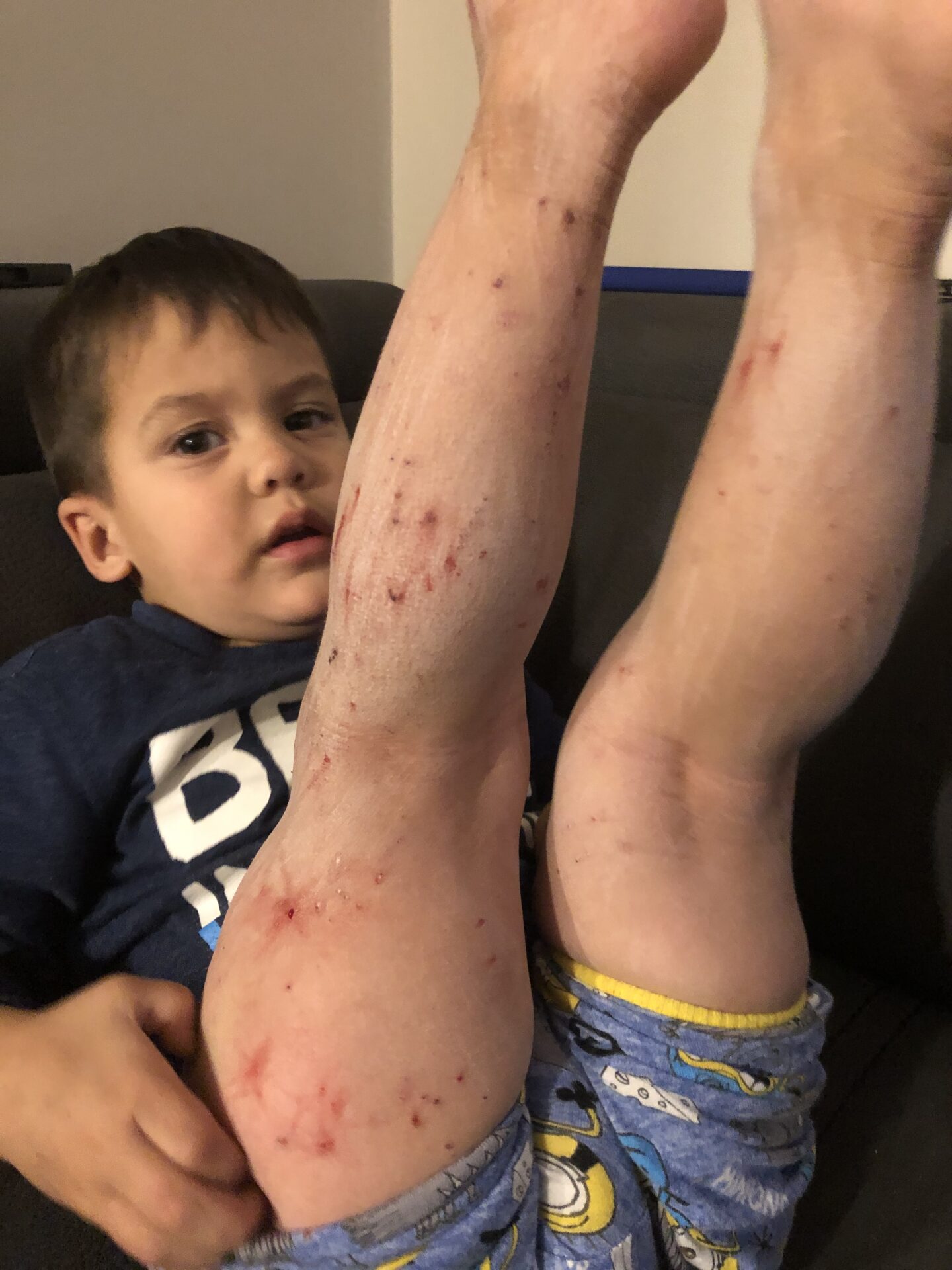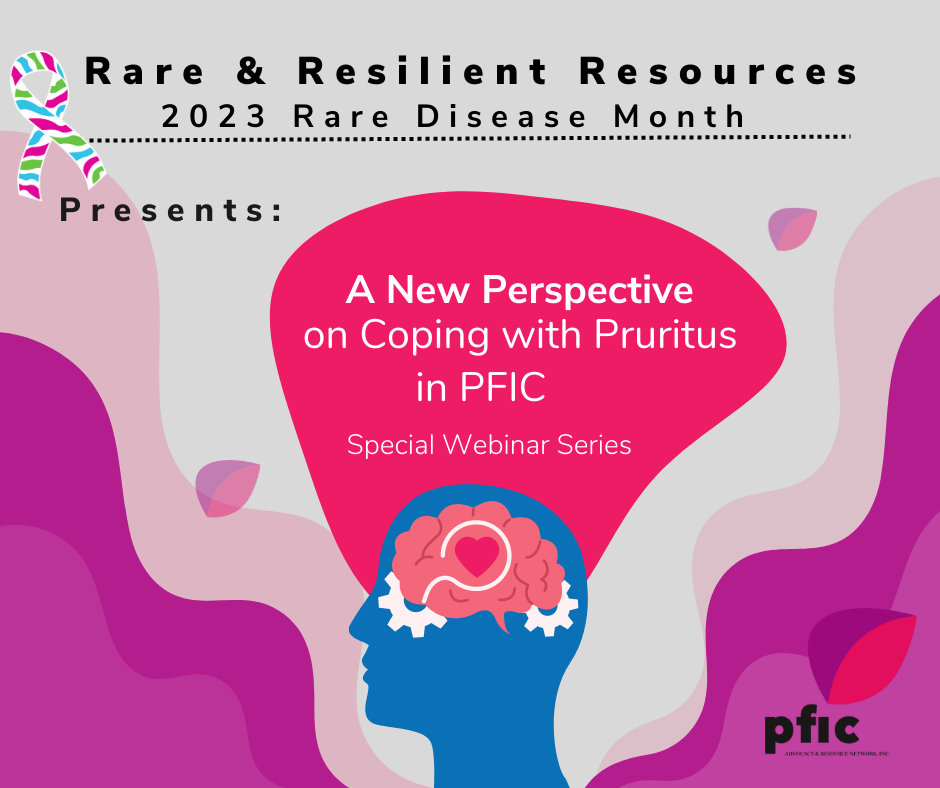Pruritus Resources
by Lisa Jensen
PFIC pulls a host of challenges in its wake. The waves are unique to each patient and family, but some challenges are widespread–and widely experienced as overwhelming. Pruritus falls in this category.
When a well meaning acquaintance hears that you or your child has PFIC, their eyes may widen at words like “liver disease” or “hospitalization” or “transplant.” When they hear about the itch, on the other hand, they may imagine it is a mild inconvenience that can be lotioned away. The medical community is beginning to research and acknowledge the very real impacts of pruritus on mental health and quality of life. This awareness and body of knowledge are still in their infancy, though, which means that not all providers understand the scope of the challenge or how to be helpful to patients and their families. The itch is miserable, for patients and caregivers alike. When misery goes unacknowledged or is misunderstood, it becomes more miserable still.

If you or someone you love is suffering from pruritus, that suffering is very real. Tending to the emotional and mental aspects of that suffering is every bit as important as tending to the physical aspects of pruritus (or any other symptom of PFIC). And a hopeful picture is emerging from the research on itch: because stress causes inflammation and inflammation exacerbates itchiness, tending to one’s emotional and mental health can actually make itch feel more manageable.
Below we’ve compiled a short but mighty list of resources to help you learn more about the relationship between pruritus and mental health. Whether you are a caregiver or a patient, tending to your own stress response can help to mitigate the experience of itch and make it less overwhelming. Nothing listed in these resources is a cure, per se–and yet, trying out these tools can absolutely be healing. We would love to hear which ones you find most helpful! And as always, if you need support, coaching, or a listening ear, we hope you will reach out to us at mentalhealthsupport@pfic.org.
- Rare and Resilient Webinar. This five-part webinar series, created specifically for families with PFIC, explores the relationship between stress and pruritus and offers a wealth of tools and skills for coping. Even if you or your child do not suffer from pruritus, this webinar series will still provide information that could be beneficial to you. Some of the coping skills and strategies covered are applicable to a wide variety of life challenges or medical difficulties, not just pruritus.
- Creating a Toolbox to Manage Itch. This is an excellent resource from Global Parents for Eczema Research. Because it is written for families dealing with eczema rather than PFIC, not all of the treatment options will be relevant, but the practical suggestions about managing the itch-scratch cycle, providing healthy distractions, and using relaxation skills to dial down itch are very applicable.
- Mini toolbox.This one page, printable document provides a helpful, visually appealing summary of the information from Creating a Toolbox to Manage Itch. This can be a great resource to look at together with children to help them create their own plan for managing itch. Not every tool or strategy will be helpful for every patient or family, but with so many tools to choose from on this list, there is something for everyone.
- Itch Workbook for Kids. As with the above two resources, this was created for kids with eczema but still has applicability to PFIC. This workbook provides kids a space in which to explore and express what helps them with itch and what makes things harder. It can be a launching point for building new tools, habits, and skills.
- Podcast: Mental Health Impacts of Itch. This podcast episode from Global Parents for Eczema Research discusses the mental health impacts of itch and how they impact both patients and their parents. If you feel like you are alone in your sleepless nights or with anxiety about future flares, this episode may feel validating, normalizing, and even hopeful. It ends with an exploration of the most recent research on how to manage and reduce stress related to itch–and how this makes the itch itself more manageable.
